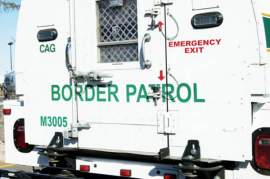
5 Steps To Fiancee Visa

Step 1. In order for a non-citizen to gain citizenship – or legal, permanent residency – through marriage to a citizen of the United States, the marriage must take place within the United States of America. In order to be allowed entry into the United States, the non-citizen must complete a K-1 Visa application, which entitles that individual entry into the United States for a period not to exceed 90 days; if the marriage does not take place within the 90 day period, an entirely new K-1 Visa application must be completed and the processing restarted – in addition, any supplementary, applicable forms must be refilled.
Step 2. Subsequent to the marriage within the 90 days allowed by the K-1 Visa, the non-citizen will be able to enjoy legal, permanent residence once an application for the adjustment of status is completed; this application declares that as a result of marriage, the foreign-born spouse can enjoy permanent residency status.
Step 3. In the event that the union between a non-citizen and an American citizen has produced children, unmarried children under the ages of 21 automatically receive a year-long K-2 resident status if they are claimed on the K-1 Visa belonging to the non-citizen spouse. Although the statute of limitations pertaining to the K-2 Visa last for a year, children who have received K-2 Visas must file for an adjustment of status prior to that year’s end.
Any unmarried children under the ages of 21 who are not claimed in the non-citizen spouse’s K-1 Visa are not eligible for K-2 Visas
Step 4. In the event that an unmarried child – or child under the age of 21 – has not been claimed on the K-1 Visa belonging to the non-citizen spouse, which precludes the awarding of a K-2 Visa, eligible children are permitted to complete a K-4 Visa application, which allows them temporary, legal residence upon the processing of pending immigration forms.
Step 5. Family members and children – who are married or above the age of 21 - interested in attending the marriage ceremony that will take place within the 90-day stipulation allowed by the K-1 Visa belonging to the non-immigrant spouse, can file for K-3 Visa Status(s), which allows them to legally remain in the United States on a temporary basis. This stay can include a short visit or residence during the processing of pending immigration documentation.
Fiancee Visa Applications and Forms Required
In order for a non-citizen of the United States to marry a United States citizen, there are a variety of applications and petitions that must be completed; they are listed as follows:
Petition for Alien Fiancé (I-129F): This form must be completed in order to determine the Visa Status of a non-citizen spouses; depending on who is eligible to be a claimant on this form, the Visa status(s) of any children resulting from the marriage will and can vary
K-1 Visa: A K-1 Visa allows a non-citizen spouse of a citizen of the United States to legally remain in the United States for 90 days; in this time, the couple is expected to be married
K-2 Visa: A K-2 Visa is awarded to unmarried children under the age(s) of 21 produced by the marriage of a citizen of the United States and a non-citizen; children must be claimed on the K-1 Visa belonging to the non-citizen in order to be awarded K-2 Visas
K-3 Visa: A K-3 Visa allows for an immigrant to legally remain within the United States on a temporary basis; the temporary nature of the K-3 Visa makes it possible for a non-citizen to reside within the United States upon the processing of pending immigration forms – a K-3 Visa is issued to individuals who are non-citizens, married, and/or above the age of 21
K-4 Visa: A K-4 Visa is a temporary visa awarded to unmarried children under the age of 21, which provides the same rights as a K-3 Visa
Adjustment of Status Application (I-485): The adjustment of status application form changes the temporary legal status of a non-citizen to legal and permanent residential status
Notice of Appearance for the Attorney or Representative (G-28): This form presents the expressed permission on the part of the non-citizen for the presence of a hired attorney or approved representative
Certification of Photocopies (FC-029): This form allows for the approved submission of official documents in the form of photocopies; these documents are considered to be valid and acceptable in lieu of the original documentation. However, photocopies of official, government documents are neither accepted nor recognized without the completion and processing of this form.



















